

|
Contact Us Table of Contents Search Site Google listing of all pages on this website Site Map Toby Johnson's Facebook page Toby Johnson's YouTube channel Toby Johnson on Wikipedia Toby Johnson Amazon Author Page  Secure site at https://tobyjohnson.com Also on this website: As an Amazon Associate
I earn from qualifying purchases. Toby Johnson's books: Toby's books are available as ebooks from smashwords.com, the Apple iBookstore, etc. FINDING
YOUR OWN TRUE MYTH: What I Learned
from Joseph Campbell: The
Myth
of the
Great Secret
III GAY SPIRITUALITY: The Role of Gay Identity in the Transformation of Human Consciousness
GAY PERSPECTIVE: Things Our Homosexuality Tells Us about the Nature of God and the Universe
SECRET MATTER, a sci-fi novel with wonderful "aliens" with an Afterword by Mark Jordan
GETTING
LIFE IN PERSPECTIVE:
A
Fantastical Gay Romance set in two different time periods
THE FOURTH QUILL, a novel about attitudinal healing and the problem of evil TWO SPIRITS: A Story of Life with the Navajo, a collaboration with Walter L. Williams CHARMED LIVES: Spinning Straw into Gold: GaySpirit in Storytelling, a collaboration with Steve Berman and some 30 other writers THE MYTH OF THE GREAT SECRET: An Appreciation of Joseph Campbell
IN SEARCH OF GOD IN THE SEXUAL UNDERWORLD: A Mystical Journey
Books on Gay Spirituality: White Crane Gay Spirituality Series
Articles and Excerpts:
Review of Samuel Avery's The Dimensional Structure of Consciousness Funny Coincidence: "Aliens Settle in San Francisco" About Liberty Books, the Lesbian/Gay Bookstore for Austin, 1986-1996 The Simple Answer to the Gay Marriage Debate A Bifurcation of Gay Spirituality Why gay people should NOT Marry The Scriptural Basis for Same Sex Marriage
Gay ConsciousnessQ&A about Jungian ideas in gay consciousness What Jesus said about Gay Rights Common Experiences Unique to Gay Men Is there a "uniquely gay perspective"? Interview on the Nature of Homosexuality What the Bible Says about Homosexuality Mesosexual Ideal for Straight Men Waves of Gay Liberation Activity Wouldn’t You Like to Be Uranian? The Reincarnation of Edward Carpenter Why Gay Spirituality: Spirituality as Artistic Medium Easton Mountain Retreat Center Andrew Harvey & Spiritual Activism The Mysticism of Andrew Harvey
Enlightenment
Joseph Campbell's description of Avalokiteshvara You're Not A WaveJoseph Campbell Talks about Aging What is Enlightenment? What is reincarnation? How many lifetimes in an ego? Emptiness & Religious Ideas Experiencing experiencing experiencing Going into the Light Meditations for a Funeral Meditation Practice The way to get to heaven Buddha's father was right What Anatman means Advice to Travelers to India & Nepal The Danda Nata & goddess Kalika Nate Berkus is a bodhisattva John Boswell was Immanuel Kant Cutting edge realization The Myth of the Wanderer Change: Source of Suffering & of Bliss World Navel What the Vows Really Mean Manifesting from the Subtle Realms The Three-layer Cake & the Multiverse The est Training and Personal Intention Effective Dreaming in Ursula LeGuin's The Lathe of Heaven Gay
Spirituality
|
The Importance of Having a Church So You Can Leave It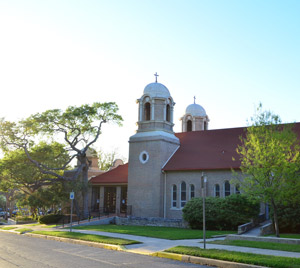 Traditionally
religion inculcated moral values, described the deep structure of the
cosmos, hinted at the depths and layers of consciousness, and
introduced human beings to symbolic and metaphorical thinking as an
enrichment of life and a source of meaning. Religion—the set of stories
that were passed down through culture in art, ritual, and cultural
festival—“revealed” that life was bigger than it seems, that there is
more to existence than just eating, copulating, and working (so you can
manage the first two enterprises), that consciousness transcends the
short and sometimes brutal life span of the individual. Religion
provided clues by which individuals, as well as whole societies, made
sense of their life experience and found emotional sustenance and
motivation to persevere in spite of hardship and misfortune. Religion
gave people identity. Traditionally
religion inculcated moral values, described the deep structure of the
cosmos, hinted at the depths and layers of consciousness, and
introduced human beings to symbolic and metaphorical thinking as an
enrichment of life and a source of meaning. Religion—the set of stories
that were passed down through culture in art, ritual, and cultural
festival—“revealed” that life was bigger than it seems, that there is
more to existence than just eating, copulating, and working (so you can
manage the first two enterprises), that consciousness transcends the
short and sometimes brutal life span of the individual. Religion
provided clues by which individuals, as well as whole societies, made
sense of their life experience and found emotional sustenance and
motivation to persevere in spite of hardship and misfortune. Religion
gave people identity.I was fortunate personally to have been assigned Joseph Campbell’s The Hero With a Thousand Faces for an English class in symbolism in literature while I was in college as a Catholic seminarian with a religious order called the Servites. Campbell’s survey of recurrent themes in world religions inspired insight into the nature of religion itself, beyond the specifics and dogmas of any and all particular tradition. From Campbell I learned the subtle distinction in definition of the word “myth”—not as falsehood but as metaphor for elusive truths about the nature of consciousness itself. Several years later, by then an openly gay “hippie” living in San Francisco, studying comparative religion in grad school, I applied for a work-scholarship for a seminar Campbell was giving. From that job, I was invited to join the crew that would regularly staff Campbell’s appearances in Northern California throughout the 1970s. Joseph Campbell, then, became what the Jungians would call the “wise old man” of my personal spiritual journey. What luck! From Campbell—and from the zeitgeist of those heady (and occasionally deliciously stoned) days at what we thought was the beginning of the Age of Aquarius and the transformation of planetary consciousness—I learned a major turning point in the evolution of Western thought was being reached as human beings became conscious of the nature of religion as metaphor for the dynamics of consciousness rather than literal history of the activity of a literal “God.” And I experienced my gayness as an integral part of that transformation. It was not coincidence that San Francisco was both the gay mecca and the center of the “New Age.” The transformation in understanding homosexuality as a dynamic of consciousness and a psychological orientation paralleled the transformation in understanding the nature of religious thought. And the moral injunctions to lead an honest, virtuous and contributing life, inculcated by my devout Catholic upbringing—along with the countercultural campaign against the Vietnamese War and the drive for social justice championed by the Civil Rights Movement of the previous decade—transferred kit ’n caboodle to the Gay Liberation Movement. Doubtless, it was my Catholic upbringing that made me an idealistic gay activist. 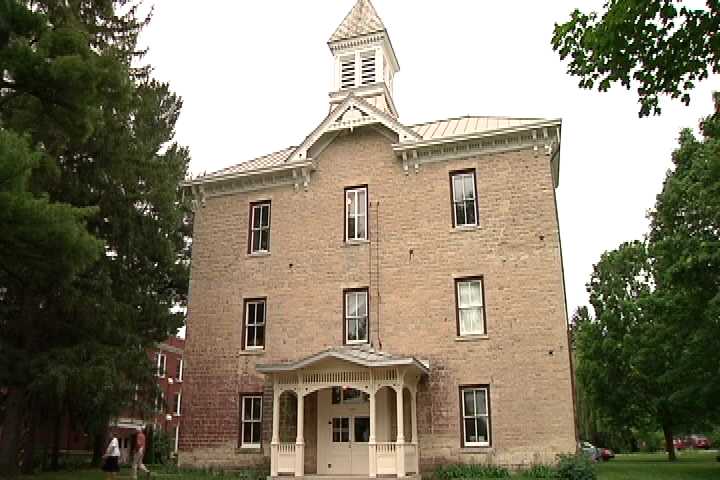 The first year of religious life is novitiate, a year of monastic training outside the formal educational system. It is focused on spiritual development and initiation into the styles and lore of religious life. For that year—my first year out of high school, my first year as an adult—I lived on a farm in the Mississippi River bluffs of Wisconsin, a life wonderfully monastic, prayerful, and peaceful. (I was actually in two different religious orders over a seven year period. There is, of course, a story about the transfer from one to the other, but for this essay—and from a perspective forty years later—it hardly makes any difference.) We rose early to spend a couple of hours at prayer before breakfast and housework chores each day. During the morning we attended classes in theology, prayer, and asceticism (the practice of religious discipline). After lunch we played soccer or softball for an hour or two and then worked around the property, picking apples in the orchard, bringing in bales of hay from the fields, clearing brush, doing laundry, preparing dinner. The late afternoon was taken up with spiritual reading and prayer. The recitation of the rosary was followed by dinner. Most of our meals were eaten in silence while one of the novices read to us. Over breakfast we were usually read the life of some saintly character; over lunch, news and social commentary; over dinner, a religious but often entertaining novel. To celebrate special occasions the rule of silence was dispensed and we were allowed to talk. And at any rate, every evening after dinner we’d always have an hour or two of recreation when we could do as we wanted and talk as we pleased. (Usually every week or two we’d get an all-day recreation to go on an outing, climb a mountain, swim in the Mississippi, or ice-skate on the lake near town.) After recreation the evening generally consisted of meditation, study period, night prayers, and bed. Except during the recreation periods, we were supposed to maintain silence and at night we were bound under a strict “Grand Silence,” which was not to be broken for any but the most extreme emergency. Our nights were quiet. The presence of God hung over the house, bearing us into solitary sleep and away into our dreams. I especially liked the nights. I remember lying in bed watching the clouds blowing over the river-worn bluffs across the valley from the novitiate. I cherished the solitude of that time. During the day we had very little time alone. Despite the silence, we were together, the thirty-some novices and about six faculty, almost all the time. We grew very close to one another that year. I learned two very important lessons that have reverberated through my life from my experience of religious life: one abstract, one very personal. The “abstract” was that life—and consciousness—is so much bigger than we think: Catholicism conveyed a whole series of legends and stories and myths about the meaning of life in the cosmic context. The “personal” was that love and friendship—albeit non-physicalized and sublimated—trumped everything else; what mattered was interpersonal relationship, not wealth or fame or ego glorification. The virtue called “fraternal charity” was presented by the Masters of Students as a primary value of religious life. Paradoxically, I think I learned to love other men deeply precisely because I first learned to love chastely, nonsexually, and non-possessively. When a little later I learned sexuality, it was in the context of loving relationship not just ego-gratification and pleasure seeking. That has proved of immense benefit to me as an adult gay man. It allowed the ego-gratification and pleasure seeking to be included and valorized as part of loving relationship, but not to substitute for a full experience of true “fraternal charity” with a devoted partner. Now what I would learn from Campbell—and again ironically/paradoxically—from the renowned Catholic mystic Meister Eckhart is that the goal of religion and myth is to wake up and see beyond the mythological terms to the transcendent reality that founds them. As one comparative religion scholar I read (Wilfred Cantwell Smith) phrased it: “The end of religion [in the sense of goal] is the end of religion [in the sense of completion and transcendence].” The point of exposure to all these various symbols and metaphors and myths is to raise consciousness so you can see through them. So I am very grateful for the depth and breadth of my religious upbringing because it taught me how to leave the Church. In the last hundred years or so, there has been a total transformation of human nature. We live different from everybody who has ever lived before us. We travel distances in a day, our ancestors couldn’t have managed in a lifetime. We know about cultures on the far side of the planet. We understand the physical laws of universe as none before us (there’ll continue to be deeper and deeper understandings of the physical laws; the quest isn’t over, but there is certainty now about scientific fact that far surpasses mythological explanations). We have unprecedented historical perspective. We are psychologically sophisticated. We can see evolutionary and ecological dynamics. There is a “ne 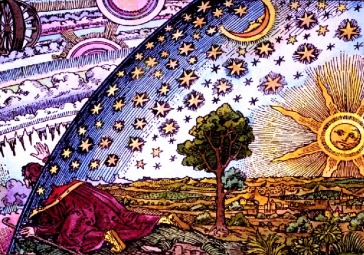 w myth” arising among us as we
transcend the literal
belief in the myths of old. That was an essential theme in Campbell’s
thought. And it’s a “higher order” myth, that is, an awareness of the
mythopoetic function itself. The clue to greater reality is that in the
past human beings conceived religious stories to inspire wonder and
love of life. It’s no longer the mythological God that inspires us to
strive to live better and more compassionate (and ecologically sound)
lives, but the realization we’re all so much bigger—psychologically and
spiritually—than we imagine and the clue to that is the mythopoetic
function of consciousness. The “new God” is consciousness revealing
itself to itself as us. w myth” arising among us as we
transcend the literal
belief in the myths of old. That was an essential theme in Campbell’s
thought. And it’s a “higher order” myth, that is, an awareness of the
mythopoetic function itself. The clue to greater reality is that in the
past human beings conceived religious stories to inspire wonder and
love of life. It’s no longer the mythological God that inspires us to
strive to live better and more compassionate (and ecologically sound)
lives, but the realization we’re all so much bigger—psychologically and
spiritually—than we imagine and the clue to that is the mythopoetic
function of consciousness. The “new God” is consciousness revealing
itself to itself as us.It has certainly been my own experience—and I think it is true for many others—that religious upbringing communicated the values and planted the seed for awakening to a higher understanding. And I think my homosexuality has paralleled and facilitated that awakening. In the same way that the comparative religions perspective pushed me and my peers to a higher perspective on the nature of religion—by breaking out of the boundaries of orthodoxy—so homosexuality has pushed us to a higher perspective on the meaning of life, love and sexuality. Homosexuality itself is a “religious phenomenon.” 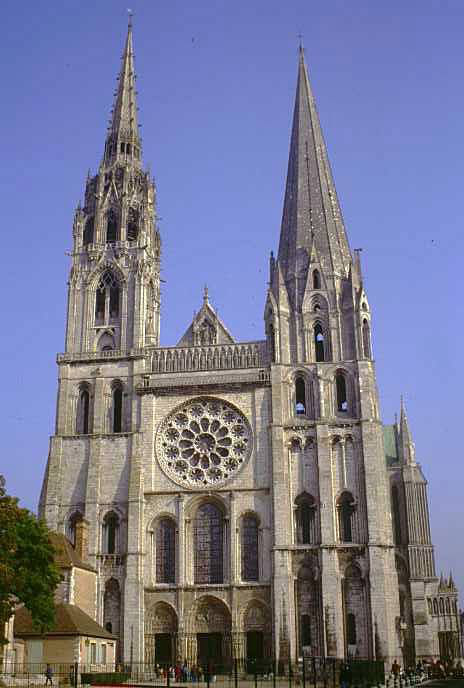 It is not surprising that “gay” men have entered the Church down through the centuries, and it is not surprising that their homosexuality inspired them through their love for their fellow religious with sentiments of erotic love and joy for life, and impelled them to understand their faith more deeply and esoterically in order to make sense of these otherwise inexplicable feelings. What’s ironic, of course, is that we’ve needed that religious upbringing in order to know the questions and appreciate the layers of meaning, so that we could see through it. We needed the Church to teach us the values that would then cause us to leave the Church. What’s the final irony, I suppose, is that one of the traditional roles of homosexuals has been to preserve the past and honor the traditions. It’s usually the gay man in the family, for instance, who is interested in genealogy, who saves antiques, the family heirlooms and old photo albums, and remembers the traditions. Similarly, it is has been the gay men who’ve gone into the Church who’ve sought to revive the old liturgical traditions and reinstate the glories of old—but with a sort of new (“post-postmodern”?) perspective on it all. 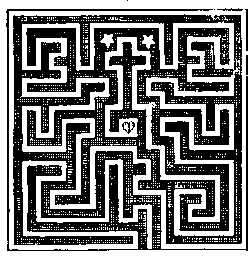 We need the Church so we can leave it. But then we need homosexuals to enter the Church to save it, so it can be there for future generations to learn the lessons and leave the institution behind as the new myth replaces it. Religious upbringing inculcates values and mystical intuitions that serve to show adults the greater Being that is the substance of a new understanding of the nature of myth. We can be grateful to the Church for giving us the impetus to see beyond it. We need the Church so we can leave it. See also: Monastic--or chaste--Homosexuality |
![]()
Toby Johnson, PhD is author of nine books: three non-fiction books that apply the wisdom of his teacher and "wise old man," Joseph Campbell to modern-day social and religious problems, four gay genre novels that dramatize spiritual issues at the heart of gay identity, and two books on gay men's spiritualities and the mystical experience of homosexuality and editor of a collection of "myths" of gay men's consciousness.
Johnson's book
GAY
SPIRITUALITY: The Role of Gay Identity in the Transformation of
Human Consciousness won a Lambda Literary Award in 2000.
His GAY
PERSPECTIVE: Things Our [Homo]sexuality Tells Us about the Nature
of God and the Universe was nominated for a Lammy in 2003. They
remain
in
print.
